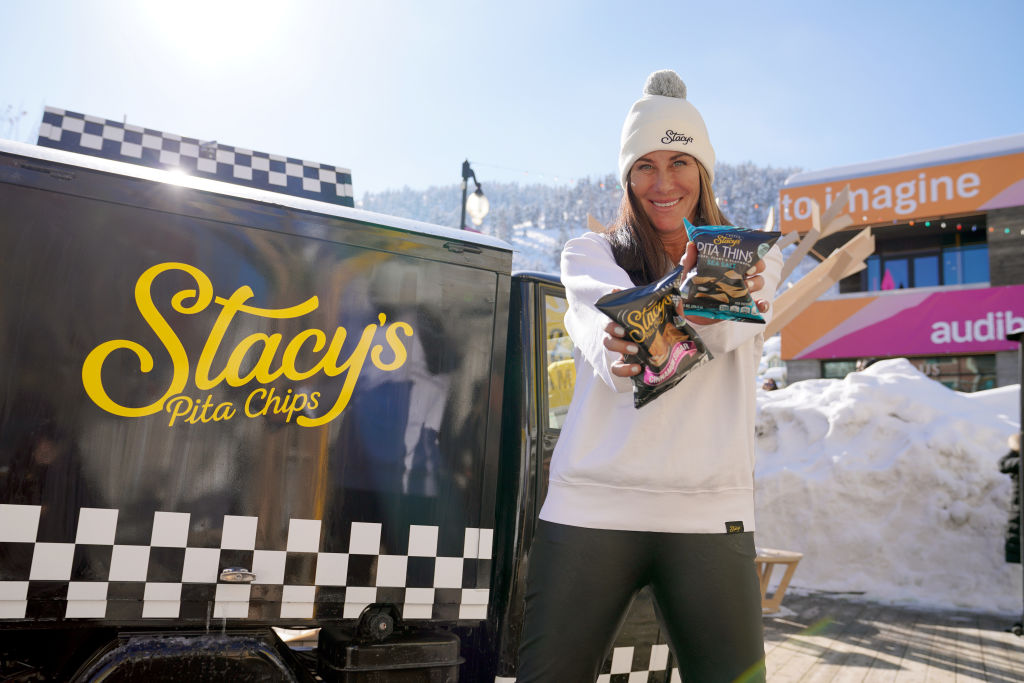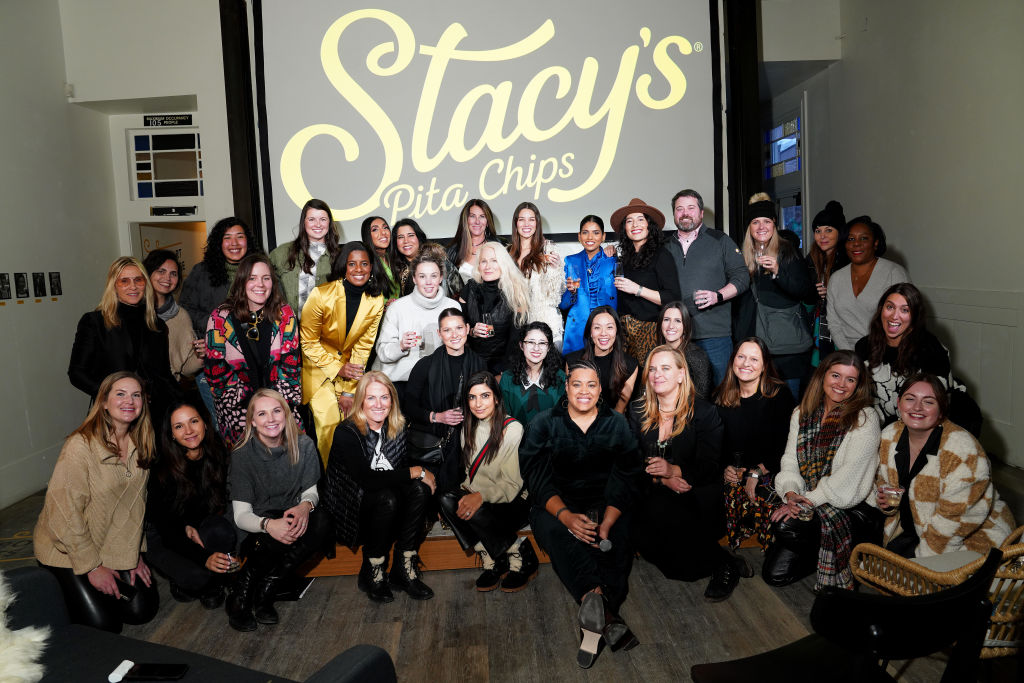Good leaders break the mold. Great leaders constantly remake it

- Leaders who chain themselves to past successes often fail to evolve.
- Health food mogul Stacy Madison broke and remade her own mold time and again.
- Her story highlights the importance of flexibility when facing stiff challenges.
For all the talk of building the future and charting new paths, business leaders can be a remarkably conservative bunch. And that makes a certain common sense. Their reputations, company success, and even the well-being of their employees ride on the decisions they make. If something worked yesterday, one can hope it still works tomorrow. If a mission steered them through troubled days before, it becomes the doctrine for future decisions.
But left unquestioned and unexamined, those old habits can just as easily lead to mistakes. Yesterday’s passions can become barriers to new opportunities. The molds we once created for ourselves — which seemed to fit us so perfectly back in the day — tighten to inhibit professional and personal growth.
This is the lesson that underpins much of Stacy Madison’s story. Madison co-founded Stacy’s Pita Chips in 1998 with Mark Andrus. Their idea was simple: bake pita chips, sprinkle them with a little healthy oil and natural flavoring, and sell them for a couple of bucks a bag. The two took that simple idea and, by 2005, turned it into a business generating $65 million in revenue.
Given the snack food industry at the time — which was more focused on being “X-Treme” than health-conscious — Madison certainly broke the mold. But to do so, she had to learn to break free of her own molds and evolve them into stepping stones to the next great venture.

New beginnings
Madison’s father was a psychologist with a family practice, and so it was long assumed that she and her brother would go into the “family business” (so to speak). While at college, Madison pursued a degree in social work, received her master’s, and went on to become licensed in Massachusetts and Washington, D.C. Years of education and experience — to say nothing of the emotional and financial investment — had led her to a promising career. And she hated it.
“I felt so isolated,” Madison tells Big Think. “I wasn’t happy doing it.”
She left the field and moved to Hawaii with Mark, her boyfriend at the time. To make ends meet, she fell back on waitressing and eventually landed a job as an assistant manager at a surf-themed restaurant. She was part of a team hired to prepare the restaurant for its grand opening, and it would prove a “stepping stone” into the food business — though certainly not in any way she could have expected.
Madison put in 80-hour weeks. She learned how to hire people and manage a team. She poured her heart and soul into the venture, and it paid off. The restaurant began making money hand over fist. A few weeks later, the restaurant manager invited Madison to a meeting where she assumed they would discuss her promised, and long-overdue, bonus. The manager let her go instead.
“I started bawling my eyes out!” Madison recalls, with a laugh.
After speaking with her aunt — who worked in the restaurant business at the time — Madison discovered that this was standard procedure. Owners over-hire to get the place operational, make grand promises, and then lay people off to cut costs. Don’t take it personally. And, for the most part, Madison took that advice. She didn’t want to stay in Hawaii forever anyway. Had the manager been honest that it was a short-term position, she would have been fine.
Getting fired teaches you how to be a good boss. It was probably the best thing that ever happened to me. I learned responsibility and what it takes to start your own business.
But there was one element of the experience she did take personally: “Getting fired teaches you how to be a good boss. It was probably the best thing that ever happened to me. I learned responsibility and what it takes to start your own business.”
And if she could work that hard for somebody else’s dream, she could certainly do it for her own.
Turning adversity into opportunities
That stepping stone led to Stacy’s D’Lites, a food cart she and Mark started after moving to Massachusetts. Today, the phrase “food cart” may conjure images of kitchens on wheels, but Stacy’s D’Lites was more of a hot dog cart leveled up to serve pita-wrapped sandwiches with upmarket ingredients. They would prep the food in Madison’s sister’s catering kitchen in downtown Boston and roll it out to serve customers street-side.
But like any business, problems arose. One was what to do with their excess pita bread. While fresh pitas make for excellent sandwich wraps, old pitas are about as pliable as a dry leaf. Madison and Mark’s solution was to slice up leftover pitas and toast and flavor them. They would hand out the chips while people waited in line, creating a “happy hour atmosphere.”
Other problems proved a little more intractable — namely New England winters. Anyone who has endured the year’s darker months in Boston will attest that the second-to-last thing anyone wants to do on those frigid days is to stand outside waiting for a sandwich. (The last thing is to be the person wrapping the sandwich outside.)

Madison and Mark began hunting for an indoor location, but in the cutthroat Boston real estate ecosystem, they always found themselves in line behind big players like Starbucks and Dunkin’ Donuts. “We just kept running into all these obstacles,” Madison says. “And so, we eventually had to make a choice: Are we going to do the cart for longer?”
Around the same time, they started building up the pita chip brand. They worked on the packaging, researched the industry from trade show floors, and sampled their pita chips in stores for feedback. As the obstacles and opportunities continued to pile up in different directions, they eventually decided to close the food cart and try building a snack company.
“You have to recognize opportunity and not let adversity prevent forward momentum,” Madison says. “I was never looking to build a company and exit or be independently wealthy. No. My goal was to work each and every day doing something that I loved to do — and make enough money that I didn’t have to rummage through my dresser for the quarters to bring to the laundromat.”
Refashioning the mold
The pair founded Stacy’s Pita Chips in 1998, and within a few years, they and their growing team had ironed out the production problems. One such problem was solved by buying a carrot-slicing machine from Campbell’s Soup and retooling it to cut perfectly sliced pita chips — which is just awesome lateral thinking.
At the same time, Madison broke her mold yet again and began growing into her new role as Stacy of Stacy’s Pita Chips. “People get stuck in their own mold. If I find myself in a circle, the thing I want to do is step outside of it,” Madison says.
But rather than let those past experiences languish, she incorporated them by tying revenue generation into the goals of mission and culture. Rather than hire workhorses to be fired she surrounded herself with people who believed in the missions of health and the growing natural food industry. She also used the flexibility afforded her as a small business to build a culture to support that team.
“I learned so many important lessons, but perhaps the most important is to surround yourself with believers,” Madison says. “You don’t realize how much naysayers can drain you and drain your team.”
There was, of course, adversity too. Mark and Madison divorced during their time running Stacy’s Pita Chips. Madison juggled the challenges of running a business and raising her twin girls. And a fire cost $9 million worth of damage to their factory right on the cusp of their sale to PepsiCo, for $243 million.
“I’m just not one of those people who gives up,” says Madison.

Adversity demands flexibility
Madison had created a successful business and sold it to a top player in the industry. She had enough money to buy a home, hire a nutritionist, and travel without needing to rummage for dresser quarters. By all accounts, she’d earned the happy ending any business leader would dream of. Still, endings, no matter how happy, ultimately become another constricting mold if we get stuck in them.
“I was very lost,” Madison admits. “I wanted my kids to see me work and to understand what it was about. I needed to do something. I wanted to build a culture again. I wanted it to align with the mission of health and wellness. And I wanted it within five minutes of my house.”
For her next role, Madison opened a new restaurant called Stacy’s Juice Bar in Needham, Massachusetts. It sold juices, smoothies, acai bowls, and protein bars. It kept Madison connected to an industry she loved. And this time, it was indoors from day one. Unfortunately, while history may not repeat itself, it certainly rhymes.
“I tried to do everything I possibly could to keep it open, but it was a casualty of the pandemic,” Madison says. “But, you know, we’re in a good place from it. I’d like to think that the whole community is a little bit healthier. [Laughs.] And it was where we made the energy bars.”
Like her pita chips before, one item on the menu seemed to become every customer’s favorite. As Madison tells it: “People would order a smoothie and an energy bar. They would get a salad and an energy bar. They would come in to grab an energy bar — one now and one for later. It was the first thing that felt like the pita chips.”
People get stuck in their own mold. If I find myself in a circle, the thing I want to do is step outside of it.
Madison and her brother, David Lowe — another psychologist originally headed for the family business before turning “snack fooder” — launched BeBOLD Foods in 2018. Again, flexibility met adversity as Madison and Lowe had to figure out not only how to make and ship energy bars so fresh they needed to be refrigerated. And once again, past experience could only take them so far.
“Nobody had experience on how to launch a company during a pandemic,” Madison says. “Nobody had experience on what a [pandemic-era] shopper’s behavior was like. All of this experience we were bringing into the company, and we were like, ‘Okay, well what can we do because this ain’t working.’”
But the pair learned, evolved, and refashioned their molds again. Today, BeBOLD Foods is growing, and its bars are moving into more grocery stores around the country. In addition to running the company, Madison has also refashioned her definition of success. Today, she is focusing on health, giving back to the community, and her philanthropic efforts, such as sponsoring children abroad.
“Sometimes the hardest part is identifying the opportunity. Once you’ve identified it, it’s just a matter of execution,” Madison says. “It’s finding an opportunity and making the decision.”





